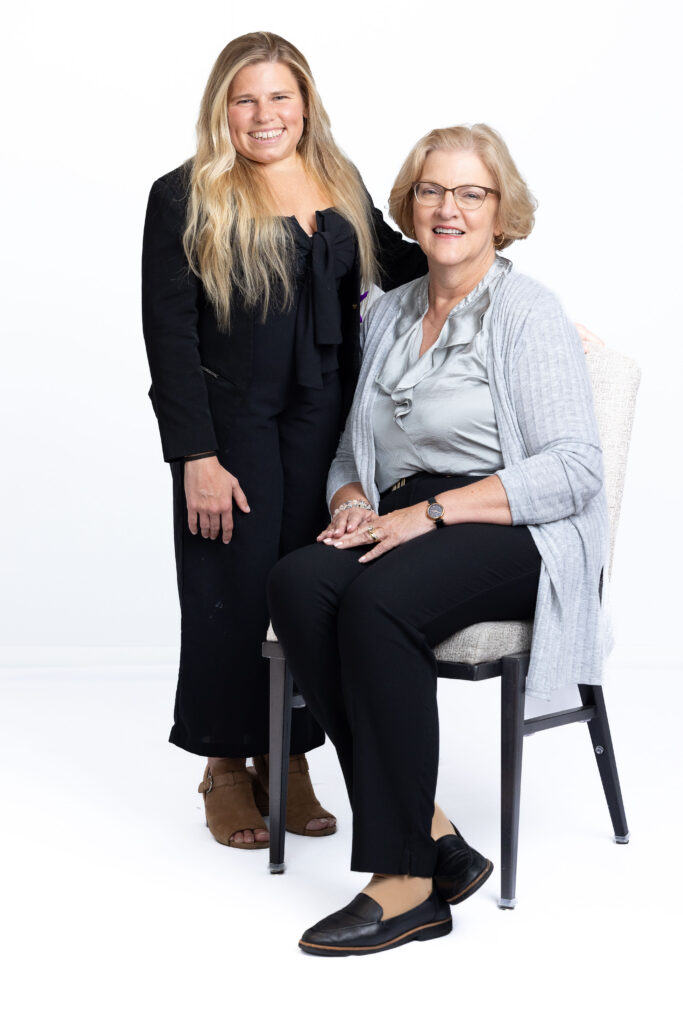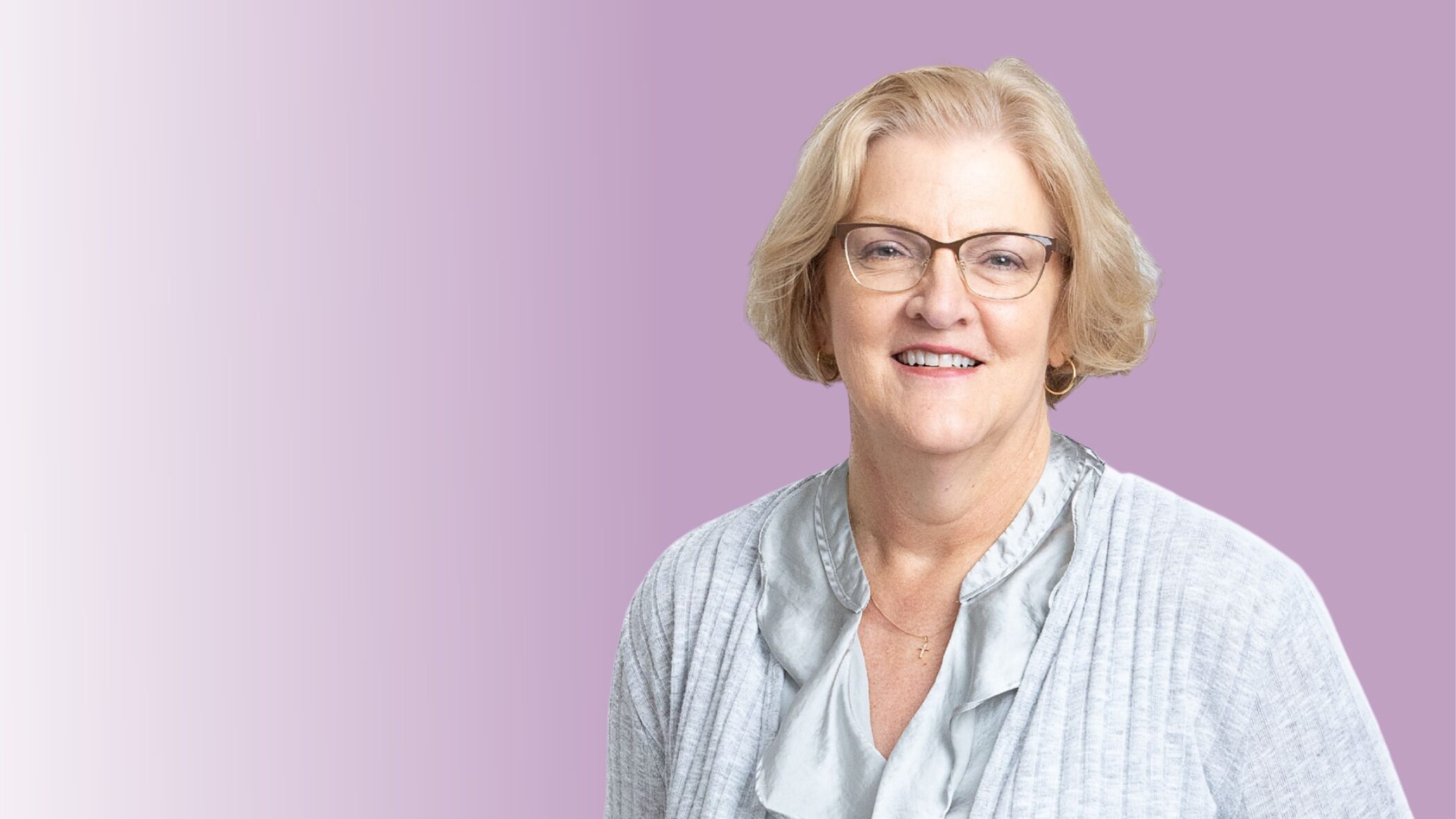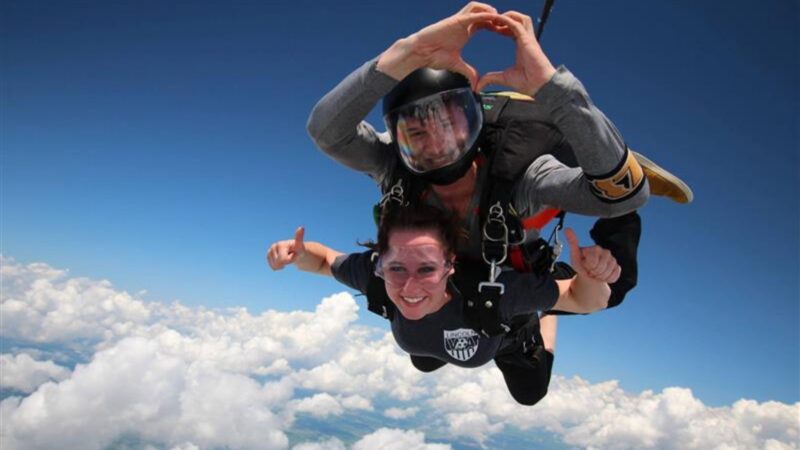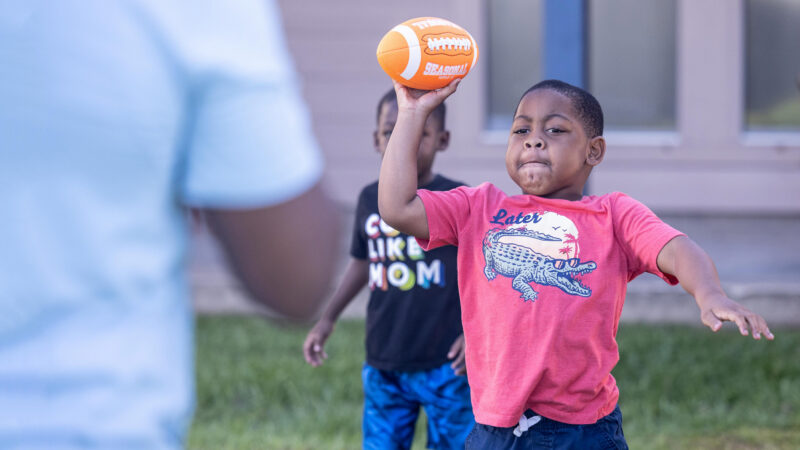Terri Klein on How Her Personal Experience Has Shaped the National MPS Society’s Groundbreaking Programs for Families
October 8, 2025
Looking back on the early days after her then 7-year-old daughter Jennifer was diagnosed with an ultra-rare genetic condition called mucolipidosis (ML), Terri Klein recalls feeling as if her family were in a “black box.”
“We were a strong family unit, but it was very hard to have limited information, and we struggled with how to tell people that our daughter had a progressive condition that meant she may not live past 12,” Terri says.
Internet searches eventually led her to support groups, the National MPS Society, and one persistent mother of an older child with ML who would check in every couple months to see if Terri was ready to talk.
One day, she was.
“That conversation changed everything. I realized that support networks were critical because they could help us navigate the specialty care our daughter needed, as well as the emotional toll,” recalls Terri. “Years later, that experience informed how we would begin to adapt our programming at the National MPS Society to better support families, especially during those first days of diagnosis.”
We recently caught up with Terri, President and CEO of the National MPS Society, a nonprofit organization focused on funding research, supporting families and raising awareness, which recently celebrated its 50th anniversary. Learn more about her journey and how she and her team draw on their firsthand experiences to improve the lives of families affected by mucopolysaccharidosis (MPS) and ML.
You’ve talked about how your own experience with your daughter’s diagnosis has informed some of the programming you have helped introduce at the National MPS Society. What is an example of that?
One program we’re really proud of, and that has become a cornerstone of how we support families, is our Pathways program, which provides comprehensive support throughout the first year following diagnosis. Many of our board members are adults with MPS or parents of children with MPS. Decades ago, diagnosis often came without compassion or direction. We thought, what if we could do more for people? What if families had someone with them at diagnosis, not just a phone call? MPS is life-limiting, and by the time it’s diagnosed, children often need urgent care across multiple specialties. Navigating that alone is overwhelming.
We envisioned a program where social workers could meet families face-to-face and help them understand what’s next. Not just the science, but the full picture: their other children, their finances, their lives. Someone who could identify barriers and help remove them.
We knew social workers could learn the science. What mattered was their empathy, their ability to wrap around the family and make the impossible feel possible. That’s how the Pathways program was born – to meet families where they are, and walk the journey with them. We’ve served more than 400 families across the United States since the program began in 2018.
A newer initiative your team has introduced to try to reach more families and provide equitable access to services is called Crossing Paths. How did that program come to be?
When I joined the National MPS Society, I was told we had most families with MPS and ML disorders engaged. But I questioned that: How did we know? Partnering with a payer company and leveraging its data, we found that only 35%-38% of families were connected to us. That really changed our understanding of our reach as an organization.
Around the same time, our Pathways program coordinator, Leslie Urdaneta, visited Georgia for a family gathering. She met families facing severe hardships: housing insecurity, lack of transportation and no access to proper care. She came back shaken, realizing how many families we weren’t reaching.
Those experiences combined to spark the idea for Crossing Paths. Now in its third year, it’s helping us find and support families who’ve long been overlooked, not just in rare disease care, but in basic human need.
With some thoughtful research, we identified the areas of the country with the highest need and have been holding events in these cities. Since the program began in 2023, we’ve held events in more than 25 cities with hundreds of attendees, many of whom we were meeting for the first time. Some of these families were very isolated and dealing with MPS or ML on their own, and these events helped welcome them into a community of instant belonging and support. It’s rewarding when we see these families coming back to other events, staying connected with members of our organization and accessing resources they hadn’t previously.
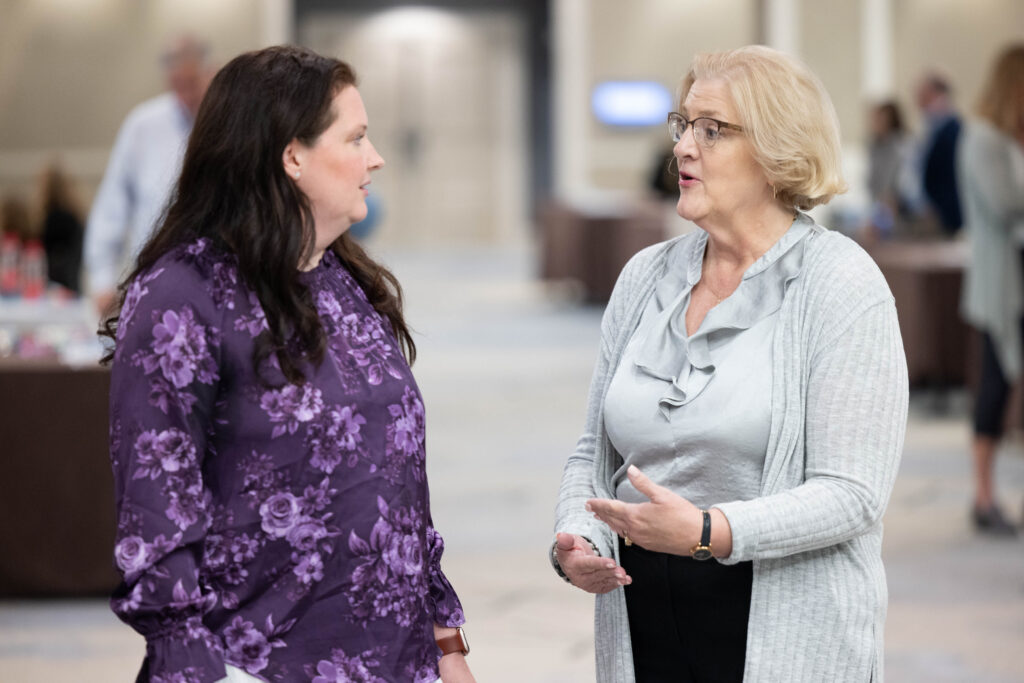
Terri (right) speaking with Leslie Urdaneta, Director of Family Support and Pathways Program, at the 2025 National MPS Society Family and Scientific Conference.
What progress from your time with the organization inspires you the most, and what still needs to be done most urgently?
When we would bring the community together in years past, we really only saw children with MPS and ML – we didn’t see adults. At our Family and Scientific Conference earlier this year, we had an array of adults thanks to some of the life-saving therapies that have been developed. I’ve watched that change during my time with the National MPS Society, and it’s been incredible to see. We are very hopeful to one day have cures for these conditions, but more immediately, we need to continue to push for therapies for the other half of our children who have forms of MPS and ML with no available treatment options.
I’ve also seen the National MPS Society evolve and become a well-known nonprofit among policymakers on Capitol Hill and at the state level as we have worked to empower families across the country to become advocates. That has enabled us to drive progress, such as having MPS I and II included on newborn screening panels in many states across the country. But there is still more work to be done to raise the visibility of other forms of MPS and get them added to newborn screening panels.
Newborn screening is a timely topic, as September was Newborn Screening Awareness Month. What are your thoughts on the current landscape for newborn screening in the United States?
Newborn screening is critical. When we have life-saving therapies available for children, we need to get them diagnosed as quickly as possible, because we know the earliest intervention will have the best outcome for the families. We’re proud that, after years of advocating, 90% of babies born in the United States are now screened for MPS I at birth, and we’ve seen some encouraging progress with MPS II as well. With the disbandment of the federal committee that recommends new additions for some state screening programs via the Recommended Uniform Screening Panel (RUSP), we unfortunately don’t have a clear mechanism at the federal level for other conditions that we think should qualify today, such as MPS IVA, VI and VII. We’re actively working to find ways to continue making progress and are hopeful that states will continue to add more conditions with approved therapies to screening panels.
After 25 years as a member of the National MPS Society, 16 years working for the organization, and seven years as President and CEO, what inspires you to keep doing this work?
In our family, it’s pretty simple: our daughter Jennifer is our inspiration. At 33-years-old, she is one of the only people living with ML III at her age who is still walking. She is a scientist who works on developing gene therapies for rare conditions. With everything she has accomplished, even though we don’t yet have a treatment for ML, Jenny remains our beacon of hope.
